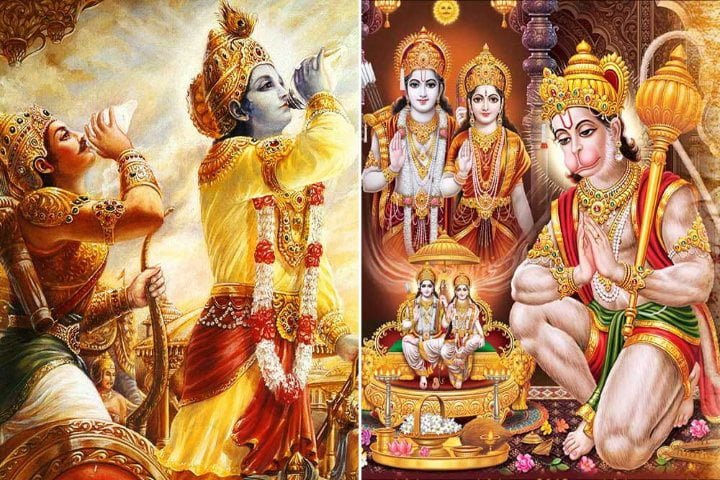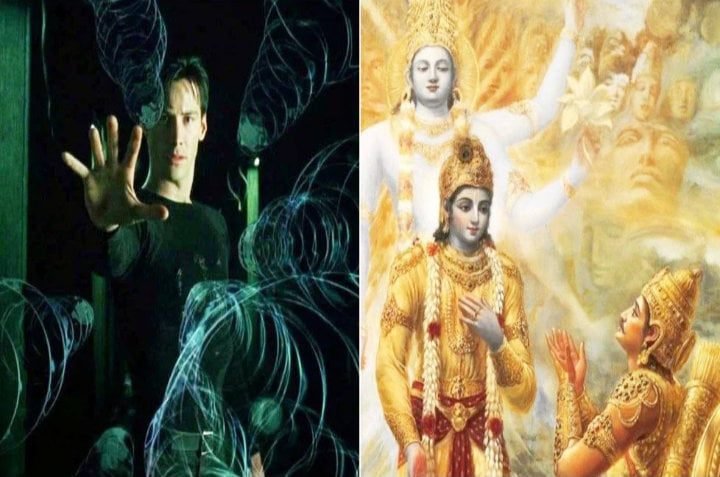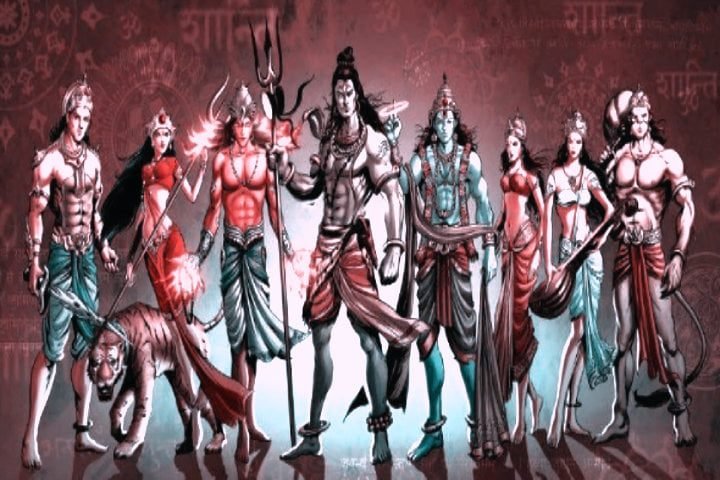Indian Epics and Mythology
Telling a story about a hero or exciting events or adventures is called epic.
Indian epics and mythology have had a profound impact within the boundaries of India and across the globe. These ancient tales hold universal themes and lessons that resonate with people from all walks of life and embody the richness of Indian civilization and culture.
The Indian epics and mythologies are not just stories; they are rich repositories of wisdom, spirituality, and moral values that show people how to live ethically.
They explore complex human emotions, dilemmas, and ethical choices that are still relevant today. The protagonists in these epics show traits like bravery, loyalty, selflessness, and fairness that are universal across time and culture.
Two Greatest Indian Epics
Two famous Indian epics are the Mahabharata and the Ramayana.

The Ramayana, attributed to Sage Valmiki, narrates the life of Lord Rama, an incarnation of Lord Vishnu. It explores themes of righteousness, devotion, loyalty, and the triumph of good over evil.
The epic follows Rama’s journey to rescue his wife, Sita, from the demon king Ravana and showcases his unwavering commitment to dharma (righteousness).
On the other hand, the Mahabharata is an epic poem by Sage Vyasa. It delves into a complex narrative centered around a colossal war between two factions of a royal family—the Pandavas and Kauravas.
Alongside this gripping tale of conflict and courage lies a treasure trove of philosophical discourses on duty (dharma), morality, ethics, and human nature.
The Mahabharata has come to mean the story of India itself and includes all the experiences one can have in worldly life. It’s 2000 years old and has a hundred thousand verses. It’s the longest poem in the world.
The Mahabharata ties India together. It doesn’t matter where people have grown up in far South India or the foothills of the Himalayas; they know these stories and these characters like members of their own families.
The renowned Bhagavad Gita, part of the Mahabharata, gives timeless advice on right and wrong and about life. Arjuna’s inner fight on the battlefield reflects how everyone struggles to make sense of life’s many challenges.
Contemporary Influence of Indian Epics and Mythology
The influence of Indian epics can be seen in various forms of art, literature, theater, dance, and modern-day entertainment. Many renowned authors have drawn inspiration from these narratives to create their own masterpieces.

The idea of dharma (duty) from the Bhagavad Gita has influenced Hollywood films like “The Matrix.”In the popular television show “Game of Thrones,” elements from Indian mythology can be woven into its narratives.
“The Lord of the Rings” parallels the narrative structure and moral dilemmas in Indian epics and mythology. The notion of a hero’s quest, fraught with challenges and self-discovery, resonates across geographies and centuries.
People worldwide have read and enjoyed Amish Tripathi‘s “Shiva Trilogy” and Devdutt Pattanaik‘s retellings of Indian epics and mythology. These mythologies are often used as inspiration in Bollywood, which shows their relevance and acceptance by modern audiences.
Marvel Comics, a cultural phenomenon in the West, incorporates elements of Hindu mythology in characters like Thor and the cosmic entities in the “Guardians of the Galaxy” series. The way these tales blend with contemporary storytelling and ancient Indian traditions demonstrates their adaptability and versatility.
Indian epics and mythology go beyond literature and entertainment and offer a spiritual connection that surpasses religious boundaries. The ideas of karma, dharma, and moksha are very important in Hinduism and have been used in spiritual discussions worldwide. Widespread acceptance of practices like yoga, which come from old Indian wisdom, has led to a more holistic approach to health.
In conclusion, Indian epics and mythology have left an indelible mark on popular global culture by inspiring creativity, fostering cross-cultural understanding, and providing timeless wisdom that resonates with people from all walks of life.




